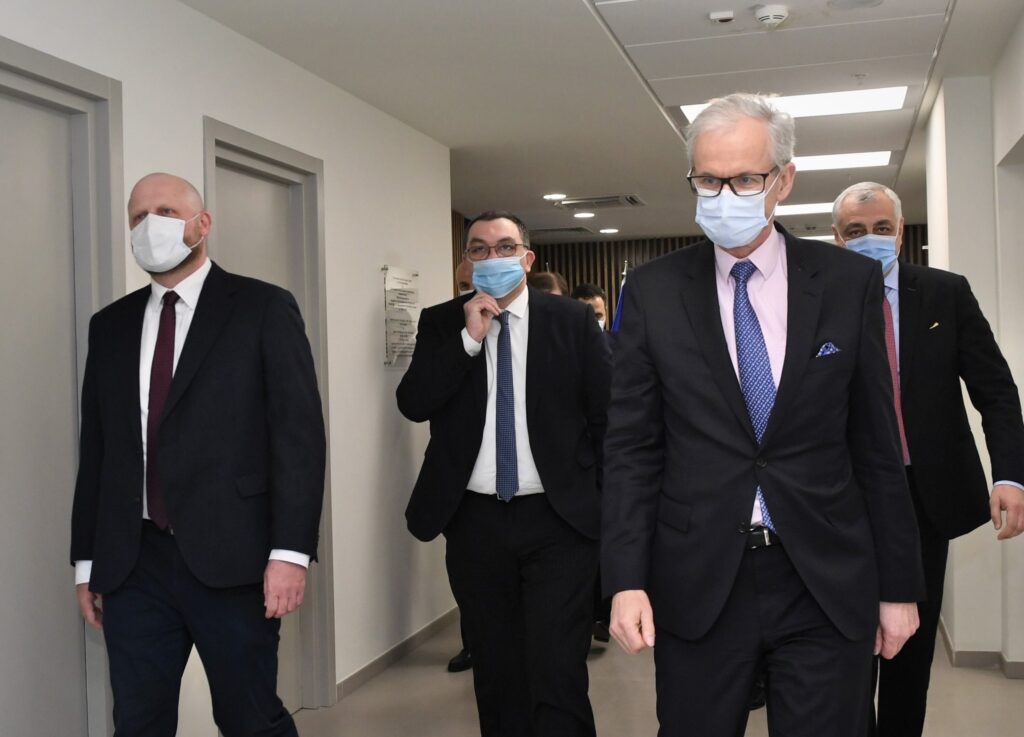EU-mediated talks between the Georgian Government and the opposition have once again ended in failure.
Shortly after midnight on Wednesday following over six hours of negotiations, EU envoy Christian Danielsson announced that ‘none of the political parties could agree’ to sign a document that he had drawn up.
The efforts to reach an agreement follow 5 months of political deadlock in Georgia, with the opposition boycotting parliament following disputed parliamentary elections in October.
‘Fulfilling European aspiration requires compromise, especially by the party in power to lead the country out of the crisis’, Danielsson added before departing Georgia to report back to Brussels.
Opposition groups said that they were ready to accept proposals over judicial and electoral reforms and their enhanced parliamentary powers envisaged in the EU’s draft agreement. This would include greater leverage on confirming Georgia’s Prosecutor General, a position widely regarded as being politicised.
Both the opposition and Georgian Dream confirmed that issues of ‘political prisoners’ and early elections turned out to be the dealbreaker.
All opposition groups regard the arrests of Nika Melia, chair of the largest opposition party, the United National Movement (UNM), and Giorgi Rurua, an influential supporter of the opposition, as politically motivated.

On 23 February, police raided the UNM offices and detained Melia for violating his bail conditions, an anticipated move that Prime Minister Giorgi Gakharia resigned over. Giorgi Rurua was arrested in November 2019 for illegal arms possession, several months after playing a role in large anti-government protests in Tbilisi.
According to the draft agreement, which was released to the media after the talks, the European mediator had suggested an amnesty for all those charged over the 20–21 June 2019 protests. This would include charges against Melia for ‘organising and leading group violence’ but would not include Rurua.
Following the negotiations, the chair of Georgian Dream Irakli Kobakhidze confirmed they were open for the amnesty, but did not commit to releasing Rurua.
Repeated parliamentary elections, one of the demands of the opposition, were absent even from the formal agenda of 30 March negotiations.
The latest document referred to ‘future elections’ in the context of ‘ambitious electoral reforms’ — including the next two parliamentary elections held with a ‘threshold between natural and 2%’ — leading to the local elections slated for October.
The opposition groups contrasted this absence in the agenda with ‘potential early election’ reportedly included in a 6-point document drafted by EU Council President Charles Michel during his visit to Georgia on 2 March.
While reporting the failure to persuade the parties to reach the final agreement in the early hours of 31 March, Danielsson still hailed the progress made over issues of electoral and justice reforms and power-sharing with the opposition as a window of opportunity to continue work towards an agreement.
A similar sentiment was voiced by Georgian Dream leaders, who claimed they would pursue institutional reforms in parliament even without the agreement.
We deeply regret that Gov. of #Georgia & Opposition failed to come to negotiated agreement during EU mediated talks. This is a missed opportunity that will delay advancement of 🇬🇪 Euro-Atlantic integration. We urge progress on judicial & electoral reforms, & continued dialogue.
— UK in Georgia (@UKinGeorgia) March 31, 2021
The 30 March talks were Danielsson’s second attempt to break the deadlock after his failure to do so during his 12–18 March negotiations.
[Read more on OC Media: Blame game in Tbilisi after EU-mediated talks fail]
‘If an agreement is reached, there will be no winners or losers, there will be only winners. And the people of Georgia will be the main winner’, Danielsson said on 29 March before bracing for multi-party negotiations slated for the next day.




 31 March 2021
31 March 2021



